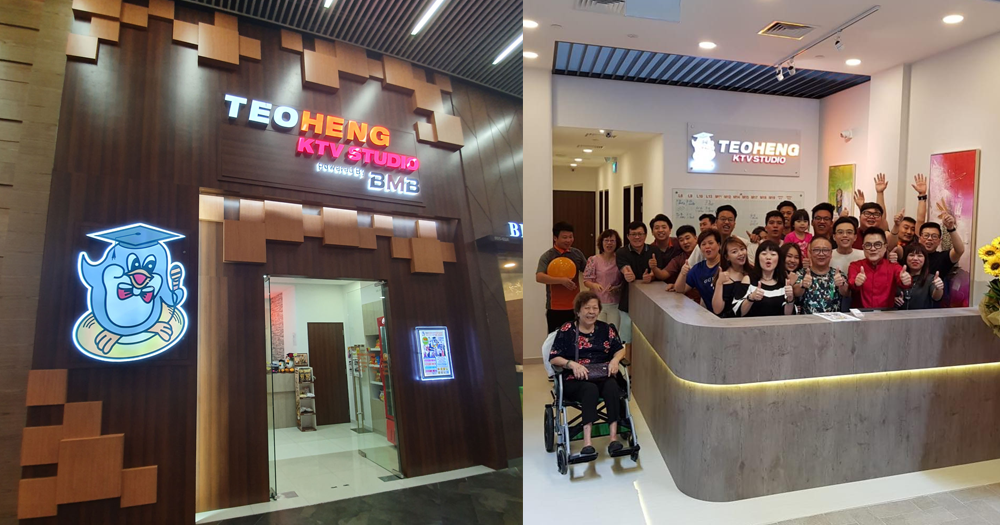PERSPECTIVE: Teo Heng KTV, which has been around since 1989, has been forced to cease operations since March 2020 due to Covid-19 regulations.
Despite sustaining about S$500,000 in losses each month since then, the business is still paying the salaries of some 120 workers in full. Amid uncertainties over reopening, the family-run business is fighting to hold on for as long as they can before letting go of their staff.
Mothership speaks to Jean Teo, who has been with the company since the 1980s, to find out what goes on behind the shutters during this time, and why retrenchment will always be a last resort for them.
It is a Saturday afternoon in October.
A man wearing a Teo Heng polo T-shirt enters the karaoke outlet in Star Vista, which has remained closed since March this year due to Covid-19 regulations, and disappears behind its doors.
Teo Heng KTV has been around for three decades and within that time, established 14 outlets islandwide.
Their doors, unfortunately, have remained shut since March 2020 following the government's announcement that all bars and entertainment outlets are to be closed.
What happens to their staff in such circumstances?
Jean Teo, the sister of Teo Heng founder Jackson Teo and the company's business development manager, tells me more about how the homegrown karaoke business is coping during this time.
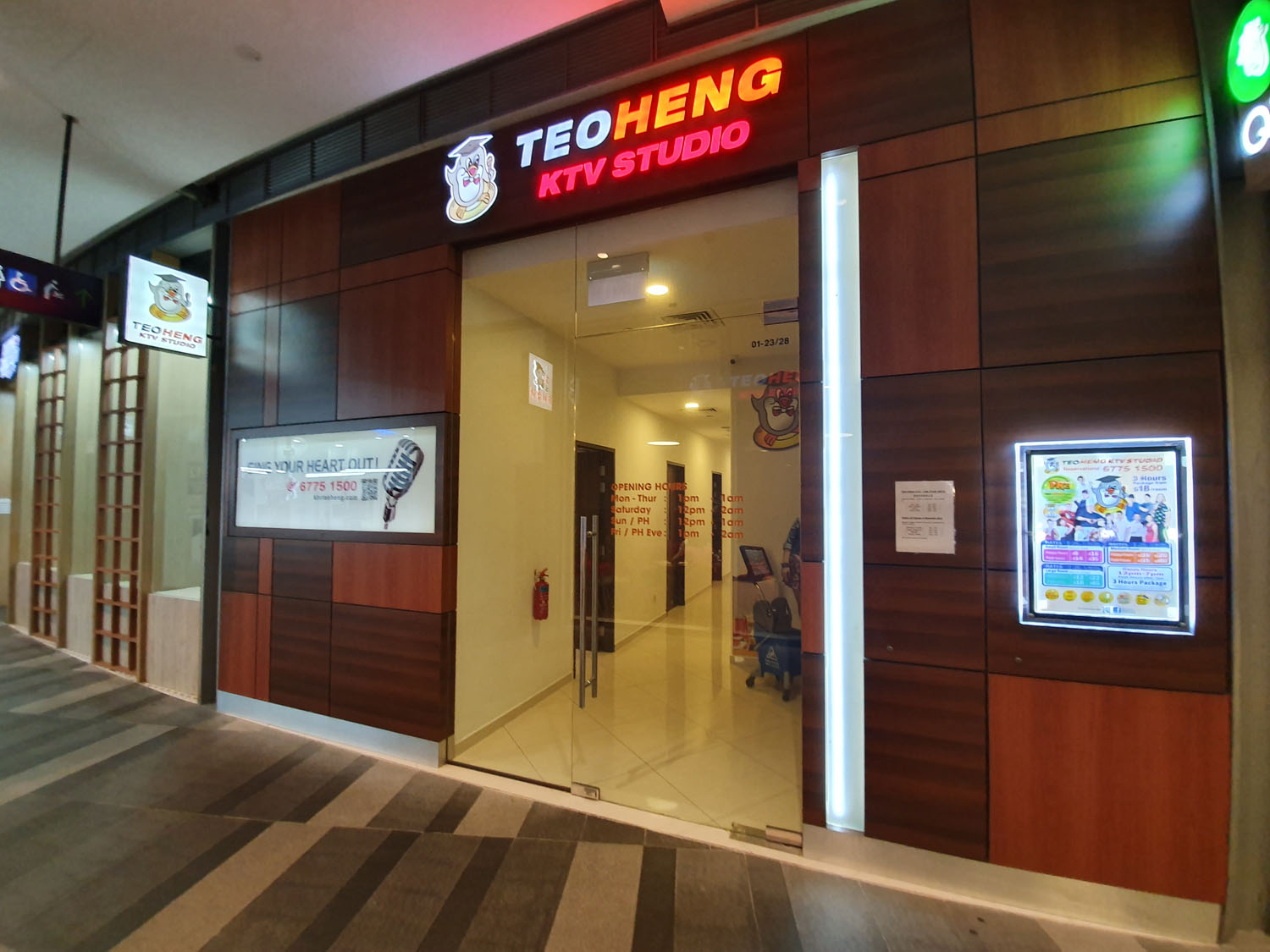 Photo from Teo Heng.
Photo from Teo Heng.
Over a phone call, Teo explains that a small portion of their staff is rostered to return to the outlets fortnightly to tidy and sanitise the place or test the sound system.
“Even though it's very uncertain, nobody can tell us when we can open, we still need to upkeep our outlets.”
About three to four workers are needed to clean a larger outlet, such as the one in Ang Mo Kio. Smaller outlets only require about two staff.
The company is putting in the effort to maintain their outlets in hopes that they can spring into action immediately when the government allows them to do re-open, Teo says.
Their staff also go for upgrading courses related to service and hospitality, which are funded under a SkillsFuture grant.
In addition, their manpower costs incurred when they send their employees for skills training are also defrayed by the Absentee Payroll (AP) funding offered by the government.
Teo says that they are still paying all of their employees in full during this entire time. Yes, including CPF contributions.
“We are all depending on our reserves, the longer it takes, we may have to consider closing more outlets. But we still want to keep our workers in full force."
The business is drawing on their savings to sustain paying some 120 employees, which includes both locals and foreigners.
Despite the support, however, they still lose around S$500,000 for every month that they are unable to open — working out to millions since their doors have remained shut for the past six months.
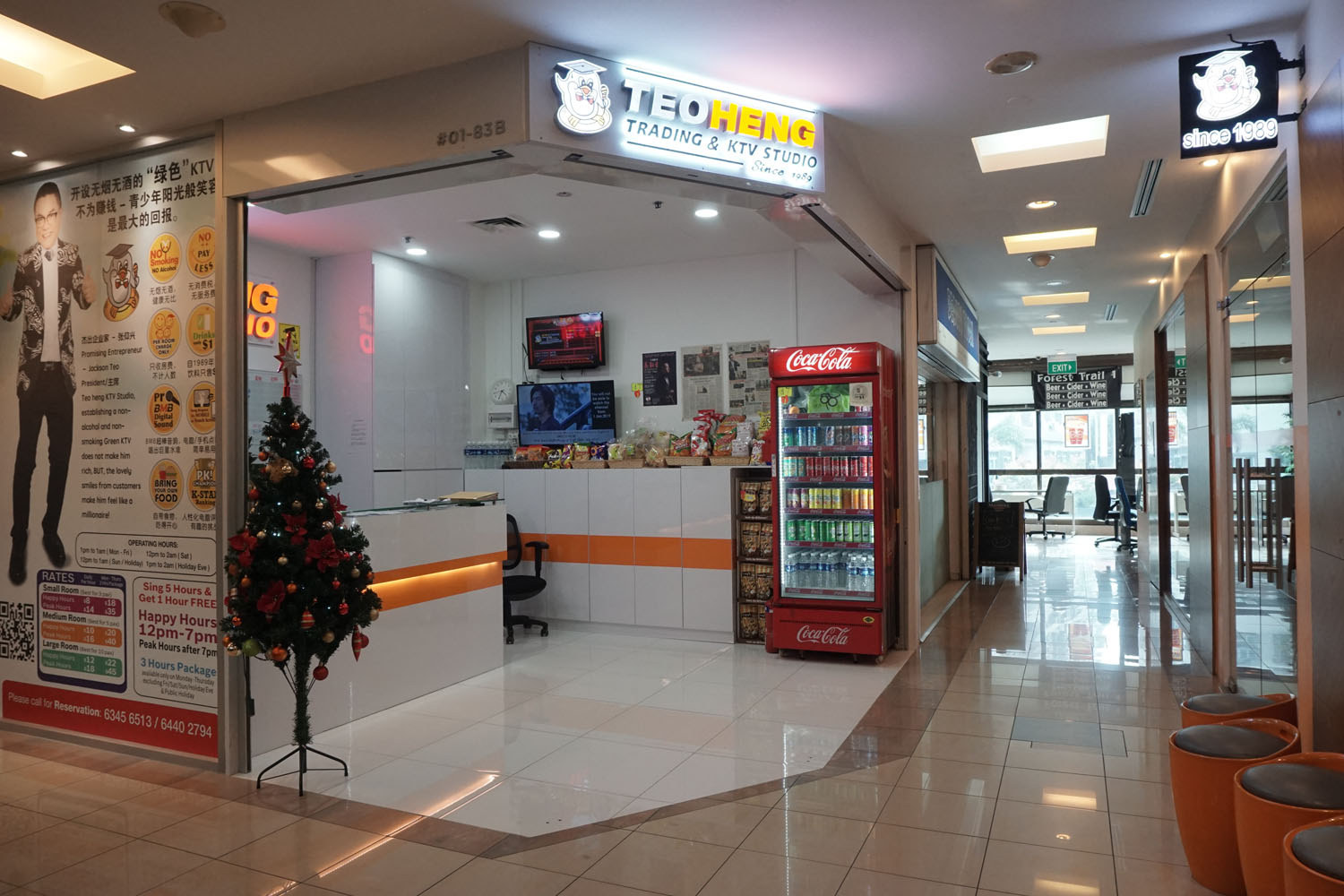 Photo from Teo Heng.
Photo from Teo Heng.
“We get rather emotional when we talk about Katong, which is our first outlet. It's really sad we have to close.”
When Teo Heng first started in 1989, there were doubts over whether a KTV that didn't serve alcohol could thrive in such a landscape.
Over the years, however, it has made a name for itself as an affordable, family-friendly KTV where patrons can even bring in their own food, or purchase drinks for the low price of S$1.
The pandemic, however, has delivered a blow right out of the blue.
In July, it was announced that the business would be shutting down seven of its outlets, including Teo Heng's first outlet at Katong Shopping Centre.
Its Sembawang outlet has also been closed, with another five outlets gradually folding as well.
But until they absolutely have to, they will hold on for as long as they can, Teo says.
When speaking about their staff, Teo brims with what can be described to be a mix of affection and wistfulness.
She tells me excitedly about their monthly Zoom meetings, and daily check-ins with their staff via WhatsApp to find out if they're doing okay. She also readily shares anecdotes about some of them.
Many of their staff are above the age of 55, and a good number have stuck with Teo Heng through the years, she says.
“We’re very traditional business people. We believe workers are like our 宝 (treasure in Mandarin)... they generate the income for us. Most of them have been working with us for a very long time. Some have been with us over 20 years. We started in 1989, and they have aged with us!”
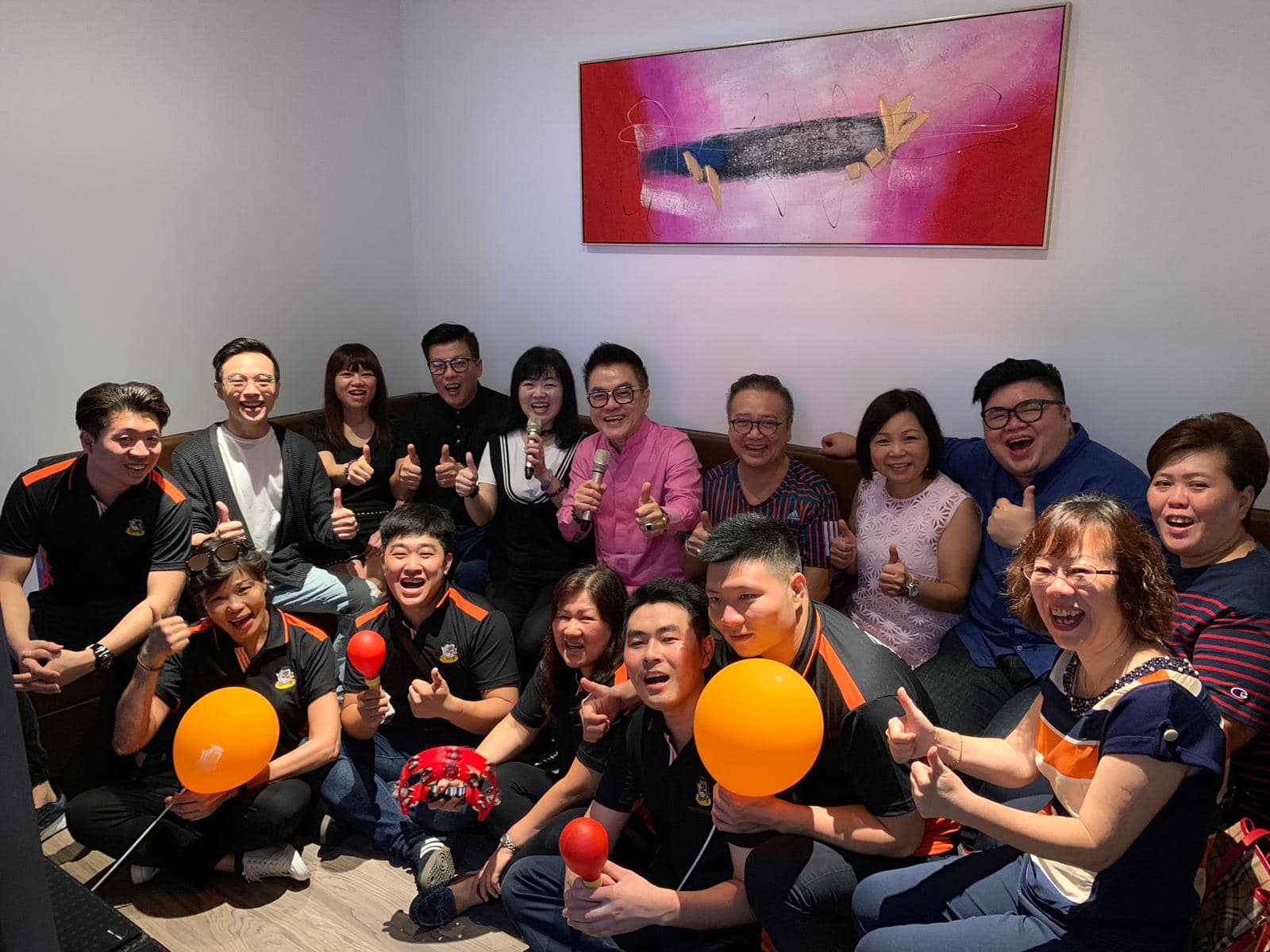 Photo via Teo Heng/FB
Photo via Teo Heng/FB
Time, however, is not on their side.
There have been helpful landlords, and government support measures when it comes to rental relief, but the hard reality is that their reserves can only last them for so long. In fact, Teo says they can only sustain their losses for about another three more months.
If they are unable to reopen by the end of this year, what happens?
Teo emphasises throughout our chat that they do not wish to resort to retrenchment. "Worst come to the worst", they would much rather close even more outlets than let their staff go.
“These workers they have been following us for a very long time. We don’t wish to retrench them also. We are trying our very best to keep them.”
For a business like Teo Heng, which is licensed as a public entertainment venue, there is nothing much they can do in the meantime without overhauling their business model entirely.
When asked about the possibility of converting their business to a F&B one instead, Teo says that it's not as straightforward as that.
She explains that certain malls do not allow for their venue to be turned into an F&B establishment, like a bistro for instance. And unlike other establishments that already hold an F&B license, it is tougher for public entertainment venues to "pivot" into the world of F&B, she says.
Besides, the transformation would require them to re-renovate the place and change the configuration of their venue in order to meet licensing criteria. This would also incur costs.
"We don't know what we can do further already... How to build (an F&B business) from scratch? It's impossible in such a period! A lot of money and risk involved."
Apart from operating karaoke lounges, the business also earns a portion of their revenue from the sale of karaoke sound systems.
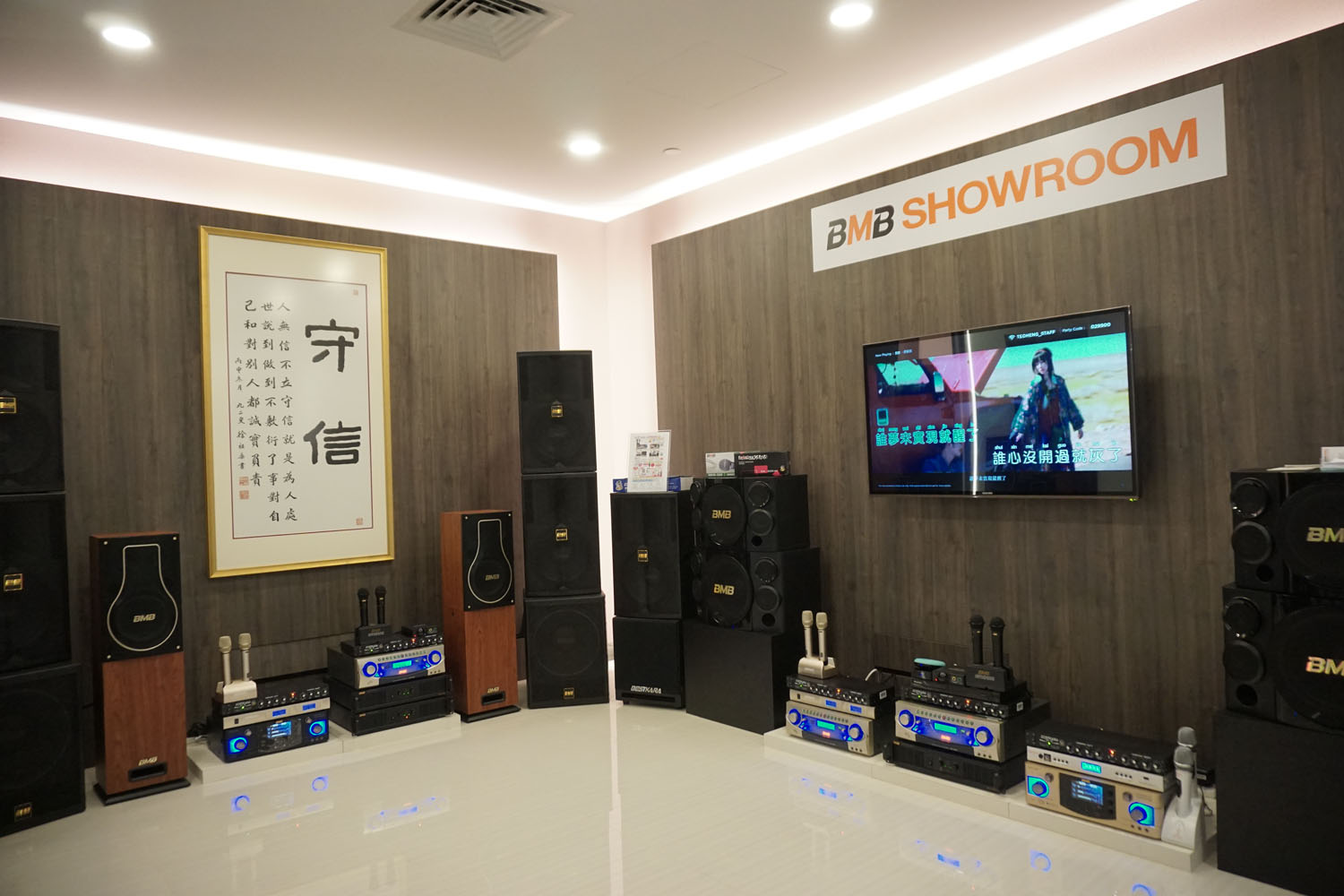 Photo from Teo Heng.
Photo from Teo Heng.
They have a few retail stores located around Singapore, but Teo says that most of these are housed within their karaoke outlets, serving more as "showrooms".
But the sales can hardly cover the company's losses during the period. And so, the hope is that they will be able to reopen as soon as possible.
“Hopefully, hopefully, we can reopen at the soonest... It all depends on the government’s decision. We cannot go back to the norm, but maybe get slightly closer to it?”
Even though the business climate is shrouded in uncertainty, and nobody really can say when people will be allowed to return to karaoke lounges, Teo remains sanguine.
Karaoke, for Teo, is not just a business nor a hobby, but a passion that runs deep.
She tells me that many Singaporeans, of various ages, have fond memories associated with singing karaoke. From students celebrating the end of the exams with cups of bubble tea, to stressed adults belting out Mandopop tunes. (Her favourite tunes to sing when she's stressed, she confesses, are those by Jacky Cheung.)
And until the day Teo Heng can open their doors again, there's nothing else that can be done but for them to keep looking forward.
“We just need to hang on, and to encourage ourselves. Happy or not happy, we need to sing our hearts out!"
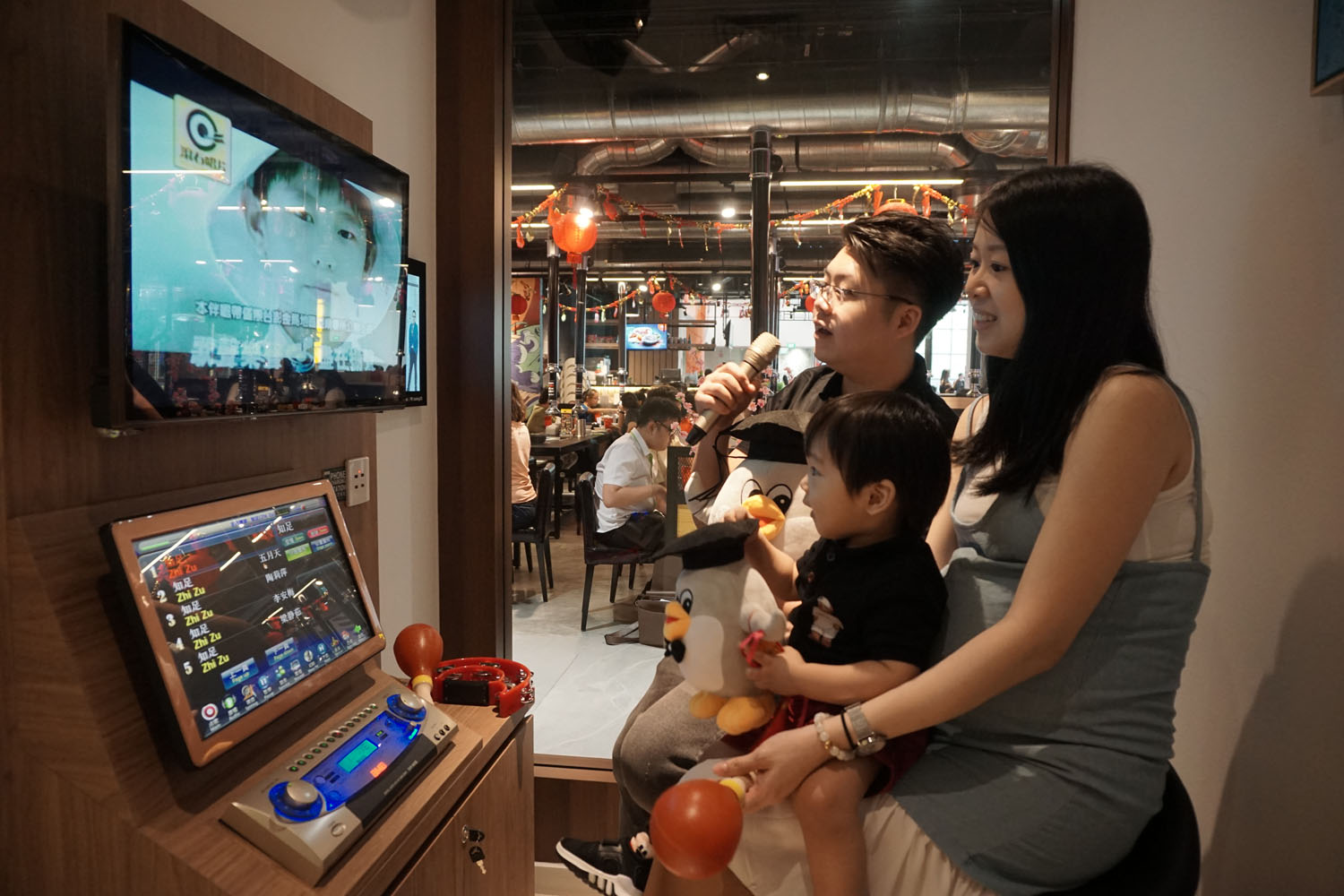 Photo from Teo Heng.
Photo from Teo Heng.
We deliver more stories to you on LinkedIn
Top photo via Teo Heng.
If you like what you read, follow us on Facebook, Instagram, Twitter and Telegram to get the latest updates.
